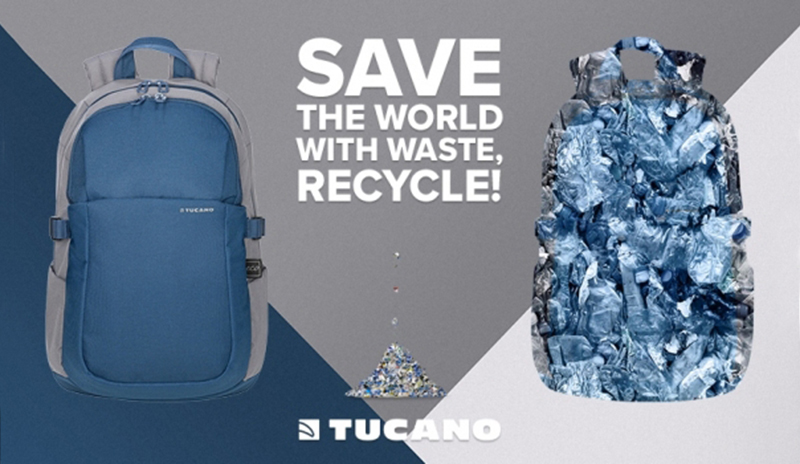People have been living with plastic for more than 100 years, it’s found in every corner of the globe and the oceans are the greatest repositories of plastic waste. In addition to being invaded by microplastics, found on the ocean floor from 200 to 600 meters deep, the Oceans are also host to the well-known, appalling plastic islands, the largest of which is the Great Pacific Garbage Patch. Located in the Pacific Ocean, it’s called the “sixth continent” due to its size, estimated as comparable to that of Canada.

Consumption and waste are the main causes of this disaster, which can certainly be improved with a less consumerist and more environmentally sustainable policy. Tucano has been following this new course for a few years now, modifying its own production cycles and using materials made from recycled plastic bottles that, over the last few years, have replaced about 50% of the collections usually made with traditional materials. Since the first eco-friendly products, made with R-pet, Tucano has improved the effectiveness of this sustainable process through research and new materials: eco-friendly nylon, eco-polyester, and netting, along with coated and elastic fabrics.


Some of these materials have been the inspiration for intriguing new collections in the 2020 catalog like the Bicolor line, including six backpack models in recycled PET polyester, and the AGS backpacks, equipped with the Anti-Gravity System, available soon in a new eco-friendly version also made with recycled materials. Tucano offers a wide range of eco-friendly products, including different styles of bags and backpacks—some of which are specially designed for travel and leisure like Ecocompact and Ecolive, and others tailored to meet work needs, like the Salvo, Forte, and Ampio backpacks.



But how can plastic be given a second life? Once they’ve been collected, the plastic bottles are ground up into small pieces, melted, and then transformed through a low-impact process. Of course the new materials are also traceable by way of a certification code, essential to ensuring the proper protocol during the recycling process. Tucano’s ever more conscious choices support the value of a circular economy essential for a future that can regenerate itself.

Recent Comments